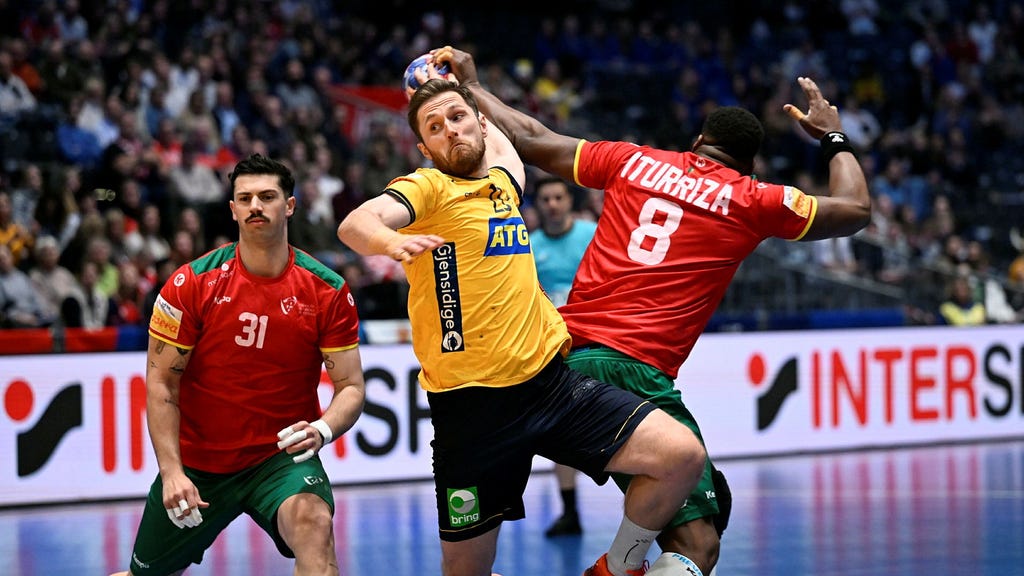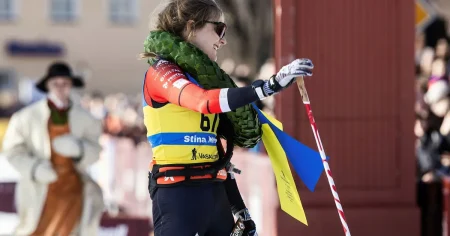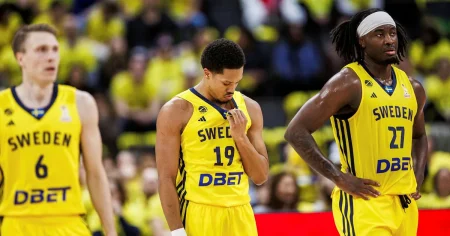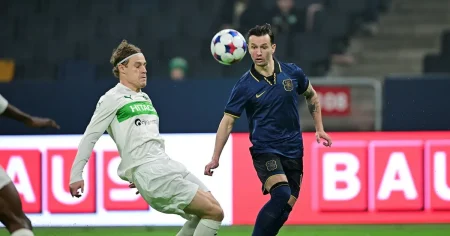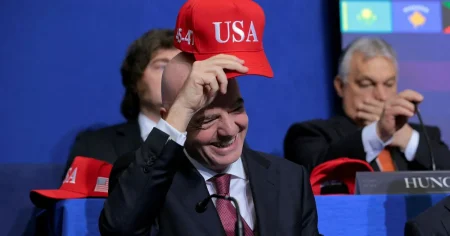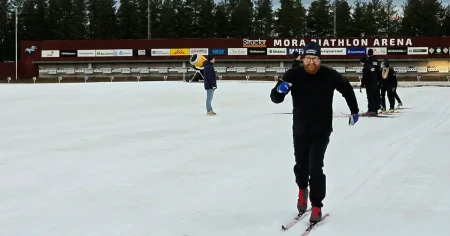The high-stakes World Championship handball match between Sweden and Portugal unfolded with dramatic tension, mirroring a similar nail-biting encounter in a previous tournament. The score remained neck and neck throughout the contest, a constant back-and-forth exchange of goals that kept spectators on the edge of their seats. In the final, heart-stopping seconds, Sweden launched a last-ditch attack. Jim Gottfridsson’s shot appeared to find the back of the net, but officials ruled that the ball had crossed the line after the final buzzer sounded at the Unity Arena. The match ended in a 37-37 draw, a result with significant implications for both teams’ progression in the tournament.
The match held crucial significance for the trajectory of both teams in the World Championship. Portugal, entering the game with three consecutive victories, aimed to secure another two points and solidify their position for advancement to the next stage. Their remaining group stage match was against Chile, considered the weakest team in the group, offering a seemingly favorable path to victory. For Sweden, a win would not only bolster their chances of reaching the knockout stage but also potentially secure the top spot in the group. This coveted position offered the significant advantage of likely avoiding a quarterfinal clash with the reigning world champions, Denmark.
Sweden’s start to the match was less auspicious than their previous encounter against Spain. Their defensive performance lacked its usual solidity, and within the first ten minutes, they had already accumulated four technical fouls. Portugal, spearheaded by the dynamic duo of brothers Martim and Francisco Costa, capitalized on Sweden’s early struggles and threatened to establish a three-goal lead on several occasions. However, Sweden’s resilient counter-attacks and the impactful contribution of Andreas Nilsson, coming off the bench, not only allowed them to catch up but also to snatch a brief lead midway through the first half.
Sweden’s goalkeeper, Andreas Palicka, encountered difficulties in handling the swift and unpredictable Portuguese shots and was subsequently replaced by Fabian Norsten. This substitution contributed to Sweden gaining a three-goal advantage. However, further technical errors, totaling nine in the first half, amidst the fast-paced game, quickly neutralized their hard-won lead. The two teams entered halftime locked in an 18-18 tie. Lukas Sandell, who stepped in for the injured Albin Lagergren, acknowledged the fluctuating nature of the game, emphasizing the need to minimize technical errors and maintain their running game to tire out the Portuguese side.
The second half witnessed the return of Albin Lagergren, arguably Sweden’s most impactful player so far in the tournament. He quickly made his presence felt, scoring consecutive goals and appearing unstoppable in the early stages. However, another spate of Swedish turnovers led to Lagergren receiving a two-minute suspension. Both defenses continued to struggle, allowing the teams to remain in a deadlock as the goals continued to flow at both ends. Midway through the second half, the score remained tied.
The match continued to see dramatic swings in momentum. Eric Johansson received a red card for an infraction involving contact with a Portuguese player’s face. Despite being a man down, Sweden weathered the storm, and Olle Forsell Schefvert, entering the game, scored a spectacular goal. Not to be outdone, Lagergren responded with another impressive goal, further highlighting his individual brilliance. With five minutes remaining, the score remained tied at 35-35, and with two minutes left, it was still level at 36-36. Another Lagergren goal briefly gave Sweden the lead at 37-36 before Portugal equalized to bring the final score to 37-37. Sweden’s next match was scheduled against Brazil, who had emerged victorious in their South American derby against Chile, adding another layer of intrigue to the evolving group standings. Brazil’s earlier upset victory over Norway further underscored their potential to disrupt the established hierarchy and add another element of unpredictability to the tournament.





